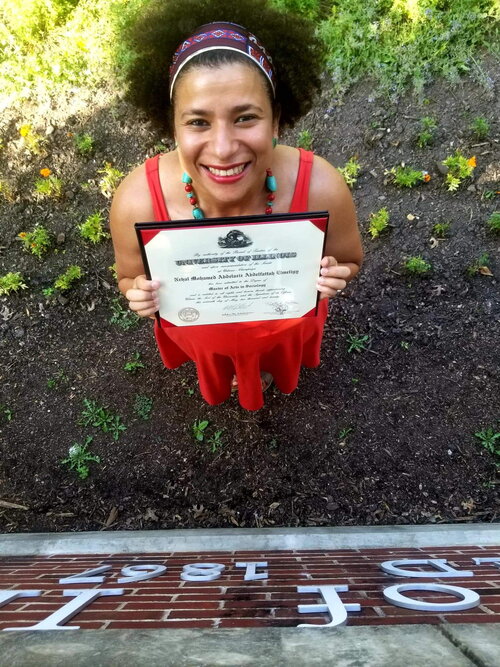
Contact Information
Biography
I was born and raised in Cairo, Egypt.
Research Interests
- Sociology of Gender
- Gender and International Development
- Social Movements
- Resistance Studies
- Gender, Women’s and Sexuality Studies
- Arab Feminist Studies
- Urban Studies
- Queer Theory
Research Description
This is an abstract to the latest paper/research I'm working on:
Recent scholarly attention to Egyptian women’s feminist resistance has been narrowly focused on revolution-related and/or organized activism (El Said, Meari, and Pratt 2015; Hafez 2019; Tadros 2016). This overshadows other factors that awakened Egyptian women’s feminist defiance. This paper intervenes in the current literature by asking: what patterns of unorganized and/or non-revolution related feminist resistance have Egyptian women been publicly partaking in, prior to and after the revolution? Drawing on 12 semi-structured interviews with Cairene women in 2017, this paper utilizes feminist theory and (everyday) resistance studies to argue that women’s audacity in public space is a form of ordinary feminist resistance, and that this audacity pre-dates the revolution and is not always inspired by it.
This paper is built upon three concepts: audacity, the ordinary, and the revolutionary. The first two describe everyday acts that women “unabashedly” carry out in Cairo’s public sphere which normative discourses deem inappropriate, immoral or shameful. As women take up space for themselves, the dichotomy of masculine/public and feminine/private gradually collapses since their audacities challenge society’s standards of normative femininity. These audacities belong to categories I define as ordinary feminist resistance in public space: pursuing pleasure, acts of self-preservation, and the right to be in the public eye.
By revolutionary, on the other hand, I mean two things: any feminist activism or resistance that occurred during the revolution, and any kind of coordinated and organized campaigning that was inspired by the revolution. In contrasting the ordinary with the revolutionary, I separate feminist resistances that are not related to the revolution and resistances that may have been inspired by the revolution but are quotidian actions that may seem unremarkable; they are not organized or part of a group. Despite my separation of the two concepts, I conceive of both as audacious. However, this paper only focuses on the ordinary.
This paper joins two literatures that shed light on women’s resistances in the public sphere in the Global South (Phadke, Khan, and Ranade 2011) and feminist literature that challenges the public/private, masculine/feminine dichotomy in the MENA region (Fabos 2017; Galan 2016; Jabiri 2016). More importantly, this paper foregrounds a type of resistance that normalizes Egyptian women’s appearance in public in ordinary everyday life, which, I argue, is a pertinent prerequisite to their (explicit and organized) political participation, which the state has cracked down on through repressive measures such as forced closures of NGOs and virginity tests.
Education
2020, MA in Sociology, UIUC
2018, MA in Women's, Gender and Sexuality Studies, University of Cincinnati
Highlighted Publications
November 2020- My first peer-reviewed academic article published in the Journal of Resistance Studies:
https://www.researchgate.net/publication/346448848_Making_a_Scene_Young…